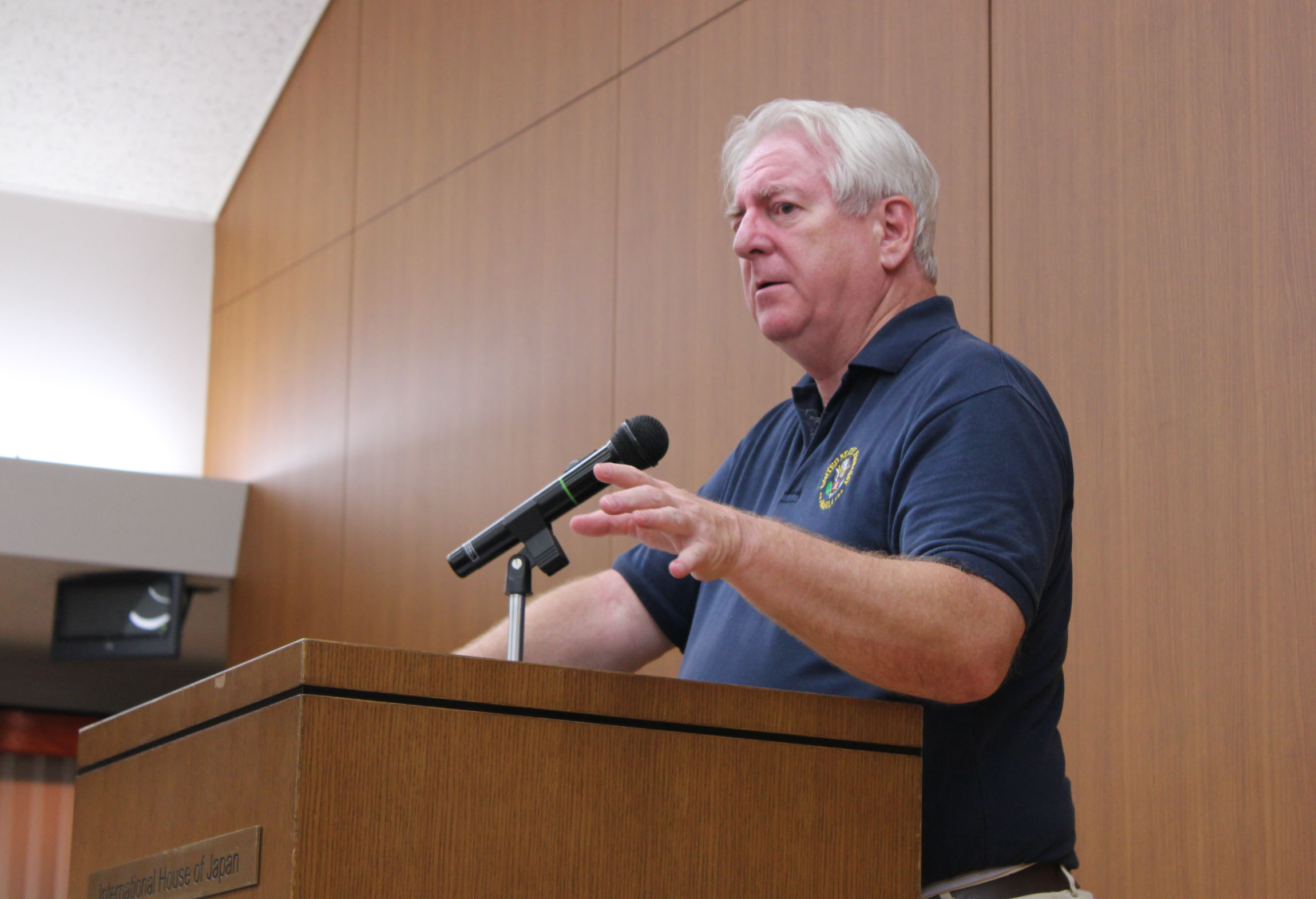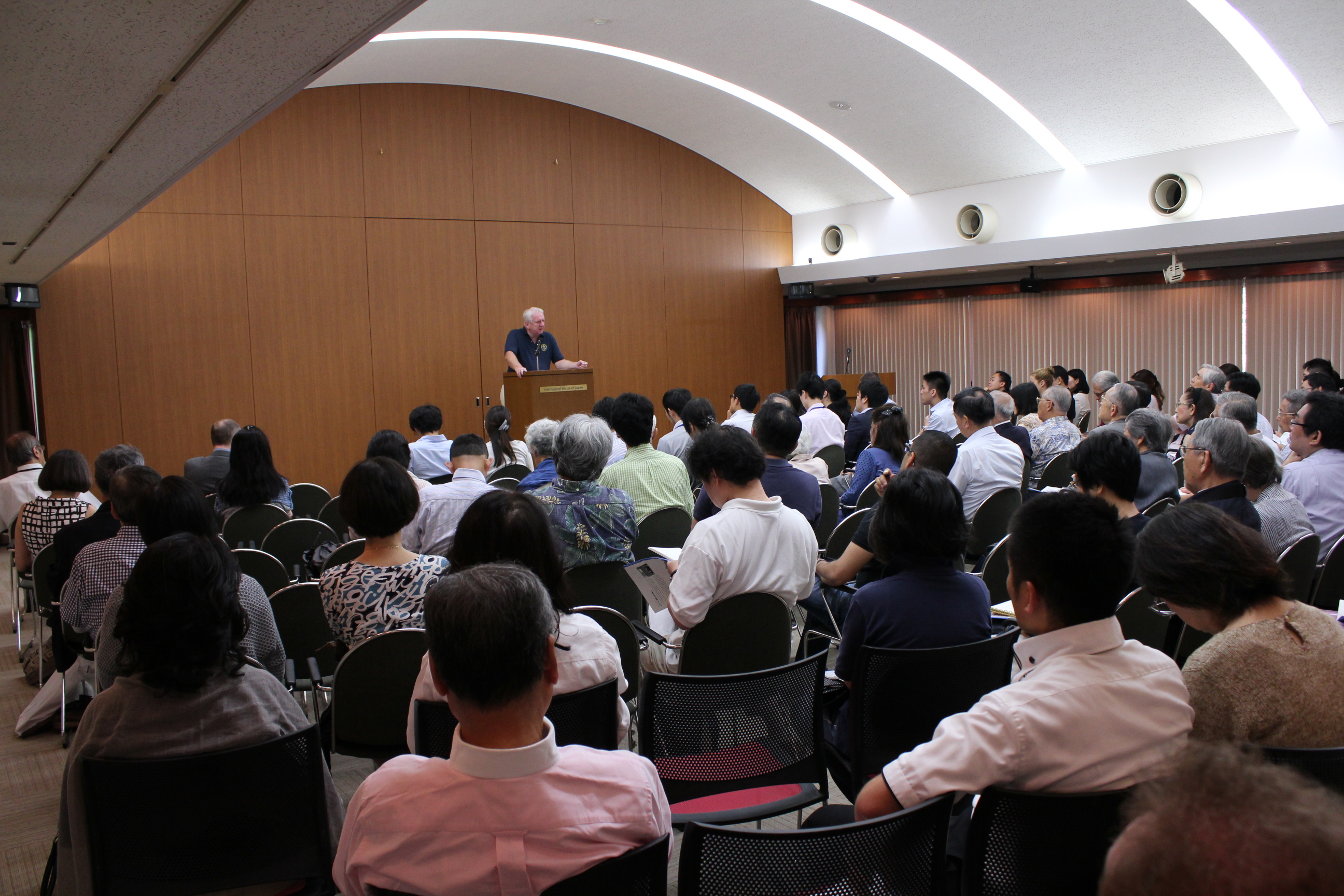This event now concluded. Report available here.
- Lecturer: Robert M. Orr
(Board of Governors, Pacific Forum, Center for Strategic and International Studies [CSIS]; Former U.S. Ambassador, Asian Development Bank) - Date: Saturday, July 2, 2016, 1:30~3:00 pm
Saturday, June 25, 2016 - Venue: Lecture Hall, International House of Japan
- Language: English
- Admission: Free (reservations required)
(Board of Governors, Pacific Forum, Center for Strategic and International Studies [CSIS]; Former US Ambassador, Asian Development Bank)
 Robert M. Orr served as Ambassador to the Asian Development Bank (ADB) From September 2010 to December 31, 2015 and became Dean of the Board of the ADB in 2013. In 2007-2010, he was Chairman of the Panasonic Foundation and concurrently Vice Chair of the National Association of Japan-America Societies, a member of the Board of Trustees of J.F. Obirin University and a member of the Board of the East-West Center Foundation.
Robert M. Orr served as Ambassador to the Asian Development Bank (ADB) From September 2010 to December 31, 2015 and became Dean of the Board of the ADB in 2013. In 2007-2010, he was Chairman of the Panasonic Foundation and concurrently Vice Chair of the National Association of Japan-America Societies, a member of the Board of Trustees of J.F. Obirin University and a member of the Board of the East-West Center Foundation.
Prior to the Panasonic Foundation, he held many positions in corporate world including Vice President of Government Relations with Motorola in Japan, Vice President and Director of European Affairs for Motorola based in Brussels, and President of Boeing Japan.
Dr. Orr’s career began in 1976 when he served for two years as Legislative Assistant to a Congressman. Between 1978 and 1981 he served on the House Foreign Affairs Asia Subcommittee staff seconded from the Select Committee on Narcotics. In 1981 he was appointed as Special Assistant to the Assistant Administrator of Asia in the U.S. Agency for International Development.
He also spent many years in academia as a professor of Political Science at Temple University in Japan with two years off to run the Kyoto Center for Japanese Studies and the Stanford Center for Technology and Innovation at the Stanford Japan Center in Kyoto. His book The Emergence of Japan’s Foreign Aid Power, published by Columbia University Press, won the 1991 Ohira Prize for best book on the Asia Pacific.
The Ambassador holds a B.A. in History, cum laude, from Florida Atlantic University, an M.A. in Government from Georgetown University and a Ph.D. in Political Science from Tokyo University. He speaks German and Japanese fluently. He is a member of the Council of American Ambassadors.
What is the “Nitobe Leadership Program”?
Report
The political and economic rise of China has not only created tension within the Asian region but also has greatly affected the international system as a whole. Based on his firsthand experience, Amb. Orr, a former US Ambassador to the Asian Development Bank, discussed some of the geopolitical challenges in the region, the rise of the Asian Infrastructure Investment Bank established by China in 2014, and a comparison of the AIIB and ADB.
Amb. Orr referred to the expansion and development policy of China as one of Asia’s fundamental challenges. “What the Chinese are always seeking, which I think stems from the colonial days, is a degree of respect that they don’t feel they get in the region and elsewhere. It’s manifested itself in many ways such as military actions, the ‘one belt one road’ initiative to produce and expand on the old Silk Road’s concept, and it’s very much linked to the establishment of the AIIB.” To be sure, China is the second largest economic power, while it is one of the major borrowers of the ADB. “The view, I think, in Beijing was that they were not fighting at their weight level.”

The ADB on the other hand was established in 1966, headquartered in Manila, the Philippines. The international development bank now has 67 member countries and regions with some 3,000 employees. With President Nakao Takehiko, a Japanese former senior financial ministry official, at the top, the ADB is governed by a Board of Governors, which is the highest decision-making body, as well as a Board of Directors which oversees the bank’s day-to-day operations. Amb. Orr’s tenure as the top US representative to the bank in 2010–15 saw the emergence of the AIIB led by China. “It was around 2012 when I heard rumblings about creating this new bank. And I sent an e-mail back to Washington but no one seemed to be interested in this thing.” The attitude of Washington, however, changed in fall 2014 upon the signing of a memorandum of understanding on creating the AIIB between 22 countries in Asia as well as the Middle East and China, says Orr. He also talked about some behind-closed-doors talks between the United States and other parties involved.
“The big concern in Washington was whether the AIIB would have a proper kind of safeguard policies regarding the environment and society that ADB, World Bank, and other multilateral development banks have.” Also the lack of a resident board appeared to be a critical governance problem. Orr explained that some improvement can be seen in the safeguards regard, saying at least what they have placed in their charter seems to reach a level equivalent to the ADB policies. Having said that, he gave his personal view that Japan and the United States should jointly participate in the AIIB to exercise influence.
